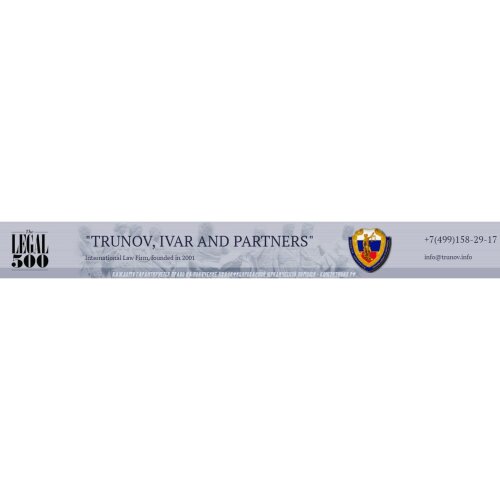Best Pension Lawyers in Russia
Share your needs with us, get contacted by law firms.
Free. Takes 2 min.
Or refine your search by selecting a city:
List of the best lawyers in Russia
About Pension Law in Russia
The pension system in Russia is pivotal to ensuring financial security in retirement for its citizens. It is primarily managed by the Russian Pension Fund, which oversees the distribution and regulation of pension benefits. The system encompasses several types of pensions, including labor pensions, state pensions, and private pensions. The state provides the labor pension, which consists of the insurance part, the funded part, and a fixed base amount. Private pensions are supplementary and provided by non-state pension funds.
The legal framework governing pensions is detailed in the Federal Law "On Insurance Pensions" and other related legislative documents, which outline the process for obtaining benefits, eligibility requirements, and the calculation methods used to determine pension amounts.
Why You May Need a Lawyer
Although the pension system in Russia is structured to be accessible, there are numerous situations where legal assistance may become necessary:
- Disputes over pension entitlements or calculations.
- Understanding and navigating complex pension regulations and legislation.
- Assistance with pension application processes and resolving any bureaucratic issues.
- Appealing against denied pension benefits.
- Planning for retirement and making decisions about private pension schemes.
- Cross-border pension issues for expatriates or returning citizens.
Local Laws Overview
Key aspects of pension laws in Russia include:
- The retirement age, which is being gradually increased to 65 for men and 60 for women.
- Pension entitlement typically depends on the accumulation of a sufficient insurance record and achieving the required insurance period.
- The calculation of pensions is based on earned pension points, the insurance period, and the fixed payout component determined by the state.
- Laws allow for early retirement under specific conditions, such as hazardous professions or health issues.
- Participants in private pension plans are subject to different rules as set forth by individual non-state pension funds.
Frequently Asked Questions
What is the retirement age in Russia?
The retirement age in Russia is gradually increasing to 65 for men and 60 for women. Transitional arrangements are in place until the full implementation of these ages.
How is the pension amount calculated?
Pensions are calculated using a formula based on earned pension points, the length of the insurance period, and a base fixed payout defined by the government.
Can foreigners receive pensions in Russia?
Foreigners who reside in Russia permanently and have paid pension contributions may qualify for pensions under the same conditions as Russian citizens.
What are early retirement conditions?
Early retirement is available under conditions such as long insurance periods, having hazardous jobs, or poor health as certified by medical authorities.
What should I do if my pension application is denied?
If your pension application is denied, you can appeal the decision through administrative processes or seek legal assistance to address the issue in court.
Are private pensions advisable in Russia?
Private pensions can be a beneficial supplement to state pensions, especially for higher-income individuals or those seeking greater retirement security.
How often are pension amounts revised in Russia?
Pension amounts are typically indexed and revised annually to account for inflation and changes to the cost of living.
Is it possible to transfer pension rights from another country to Russia?
Transferring pension rights depends on bilateral agreements between Russia and other countries. It's best to consult legal experts for specific situations.
What happens to pensions if I move abroad?
Pension payments can usually continue if you move abroad, although specific conditions may vary and legal advice is recommended.
How can I increase my pension entitlement?
Pension entitlement can be increased by extending the working period, earning more pension points, and contributing to voluntary pension contributions or private schemes.
Additional Resources
For further assistance regarding pensions in Russia, consider reaching out to the following resources:
- Russian Pension Fund: The primary body governing pensions in Russia.
- Ministry of Labor and Social Protection: Offers guidance and policy developments on pensions.
- Legal Aid Centers: Provides pro bono legal support for pension-related issues.
- Non-State Pension Funds: Offer options for private pension schemes and additional retirement savings.
Next Steps
If you require legal assistance with pension matters in Russia, consider taking the following steps:
- Gather all relevant documentation related to your employment and pension contributions.
- Identify the specific issue or assistance you need.
- Consult a lawyer specializing in pension law to understand your rights and options.
- Utilize online resources and official websites to gather more information.
- Consider attending a legal aid clinic or consulting services offered by non-profit organizations to explore available legal support.
These steps will help you navigate the complexities of the pension system and ensure you receive the assistance you need.
Lawzana helps you find the best lawyers and law firms in Russia through a curated and pre-screened list of qualified legal professionals. Our platform offers rankings and detailed profiles of attorneys and law firms, allowing you to compare based on practice areas, including Pension, experience, and client feedback.
Each profile includes a description of the firm's areas of practice, client reviews, team members and partners, year of establishment, spoken languages, office locations, contact information, social media presence, and any published articles or resources. Most firms on our platform speak English and are experienced in both local and international legal matters.
Get a quote from top-rated law firms in Russia — quickly, securely, and without unnecessary hassle.
Disclaimer:
The information provided on this page is for general informational purposes only and does not constitute legal advice. While we strive to ensure the accuracy and relevance of the content, legal information may change over time, and interpretations of the law can vary. You should always consult with a qualified legal professional for advice specific to your situation.
We disclaim all liability for actions taken or not taken based on the content of this page. If you believe any information is incorrect or outdated, please contact us, and we will review and update it where appropriate.
Browse pension law firms by city in Russia
Refine your search by selecting a city.













